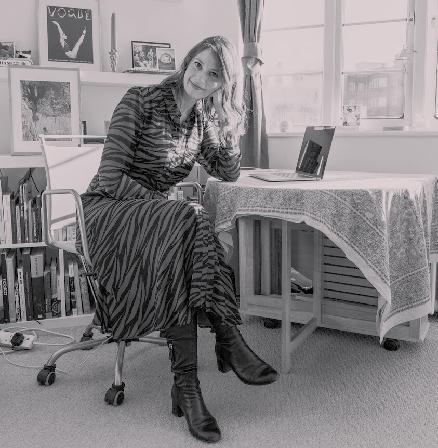
3 minute read
Ear Candy: In Writing with Hattie Crisell
bottomless comradeship. Nobody misses a first night of Joey’s new play, and everyone, of course, attends the wedding of Ross’s ex-wife.
These six people may be competitive, cheeky and fall out with each other at regular intervals but, ultimately, this is a tight band whose bonds are fast and true. Knowing this makes for a very relaxing viewing experience.
Advertisement
Of course, this could all have become unbearably mawkish, but it is saved by the scripts. “The Friends writers room was simultaneously a party room and a prison cell,” according to Saul Austerlitz, author of Generation Friends: An Inside Look at the Show That Defined a Television Era.
Each 22-minute episode is packed with one-liners and running jokes that play to everything we already know, plus, most crucially of all, the stars’ great chemistry.
Only when guest stars such as Helen Hunt, George Clooney and Noah Wyle (as ER doctors, no less), Julia Roberts and Brad Pitt turn up to do a turn does it become clear just how special the interaction between our leading six really is. Their effortless timing and understanding of one another make them hard for even those talented co-stars to keep up with.
This strength in numbers was something the stars enjoyed off-screen as well, where their unity became a superpower when it came to salary renegotiation. By seasons 9 and 10, they were each earning $1m an episode, as well as pocketing syndication royalties from 2000 onwards.
Some of the storylines in Friends are more likely than others for a bunch of Manhattan twentysomethings, but we go with it, and them, through 10 seasons of births, deaths, secret romances, accidental weddings and judgemental parents.
Why? Because, just as for the gang on-screen, there’s a great comfort in knowing that we can always come back to that kitchen table or that coffee shop sofa, and revel in the company of those friends who, in the face of triumph or disaster, always have your back. n
Friends is on Comedy Central and Netflix.
Ear candy
In Writing with Hattie Crisell
Hattie Crisell
Writing is so often a solitary and arduous pursuit that podcasts such as In Writing with Hattie Crisell are a welcome refuge.
In each episode of In Writing, journalist Hattie Crisell seeks solidarity and insight from one of the best of any and all genres. Among the 27 to date are playwright and screenwriter Lucy Prebble, novelist David Nicholls and writer and performer Robert Webb.
The interviews feel less like formal conversations than intimate visits. Crisell starts each one by asking the writer to describe their writing room.
The answers set the scene and give the first insight, with the working environment usually informing the process. Prebble’s bare room is designed to avoid distraction, while Nicholls likes his filled with photos, music and books for “subliminal inspiration”.
The writers then retrace their roads to success and share the lessons they learned along the way. This is at once reassuring and inspiring. Especially those, like Jon Ronson, whose roads were paved with rejection letters.
Now an award-winning screenwriter, Ronson admits to receiving a particularly humiliating response to the first script he sent on spec to the BBC: “Usually, when we reject submissions, we like to offer some encouragement but, in your case, we don’t see any point in you continuing.”
Each episode offers a similar comforting reminder that failure and selfdoubt are universal. So why do we do it, asks Crisell. Ronson recalls Randy Newman’s answer to the same question: “It’s how I judge myself and how I feel better.” Listen to In Writing and you’ll feel better about writing. n Harry Bennett










